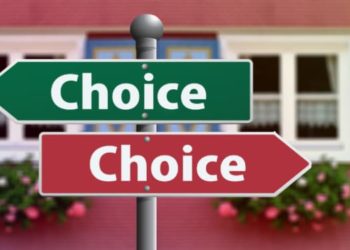Let’s face it, the pandemic was difficult for us. It felt like every time we turned around, there were new setbacks or new challenges. Many of us may have muddled along, doing the best we could despite everything happening around us. In many cases, our businesses have experienced setbacks. Wholesale customers disappeared or changed their purchasing patterns. For others, selling through different channels has become more important than ever. New opportunities have emerged.
While we worked through the challenges of the pandemic, the movement to support ethical sourcing has continued gaining traction. This is not a new movement, it’s been here for years. The pandemic has brought it front of mind for many consumers.
“When asked whether purchasing ethically sourced and/or produced products matters, 81 percent of respondents said yes. What is interesting is that nearly 20 percent of these survey respondents said that it has only mattered to them within the last year, which indicates that the Covid pandemic, and some of the product shortages we have faced, has made consumers re-evaluate their stance on ethical sourcing.” (https://www.forbes.com/sites/stevebanker/2021/10/05/do-consumers-care-about-ethical-sourcing/?sh=219b87cd5f50)
So what is ethical sourcing? Some of the considerations for ethical sourcing include:
· Who is making the product?
· How the product is being made?
· Where the product is being made?
· What kind of a carbon footprint does the product have?
“Generally speaking, when consumers make a statement such as “I prioritize ethical sourcing,” they will often be told to “put their money where their mouth is.” This research shows that the majority of consumers are willing to do just that. When asked if they would be willing to pay more for a product they could be sure was ethically sourced, more than 83 percent of respondents said yes. More than 17 percent indicated they would be willing to pay 50 percent more, and on average, consumers said they would be willing to spend about 17.5 percent more on ethically sourced products.” (Forbes source)
Many retailers are also picking up on the trends for ethical sourcing. Right now one of the ways this is showing up is a renewed emphasis on having locally sourced products. This gives you an advantage when calling on your local retailers. Use this advantage as your build your wholesale business.
How you can incorporate the trend toward ethical sourcing into your wholesale strategy?
Tip 1: Add information to your website on your production process. A surprising number of handmade sellers only share it is handmade. Consider sharing information that humanizes your process. Retailers are also craving connection. Helping them understand your processes is an important part of connecting with you.
If you are making small-batch product at your kitchen table or workshop- share that! Small batch and handcrafted is a big advantage for you right now.
Tip 2: Create educational information for your wholesale orders. This helps educate a retailer on your processes. Very few people educate the retailer on how to best sell their products. Summarize what is special about your product, production process, or story. This will make it much easier for the retailer to share with the end consumer. Where do you begin? Summarize what you tell a prospective customer at your maker fair or farmers market.
Tip 2: Work on building your local independent retailer relationships. Emphasize how you are helping them reduce their carbon footprint. Given freight and logistics challenges, this is a twofold benefit for you as a maker. Retailers are experiencing significantly higher freight costs, as well as substantial shipping delays. By purchasing locally, products do not have to be shipped as far. Where it makes sense, you may even be able to drop off your products at the retailer.






